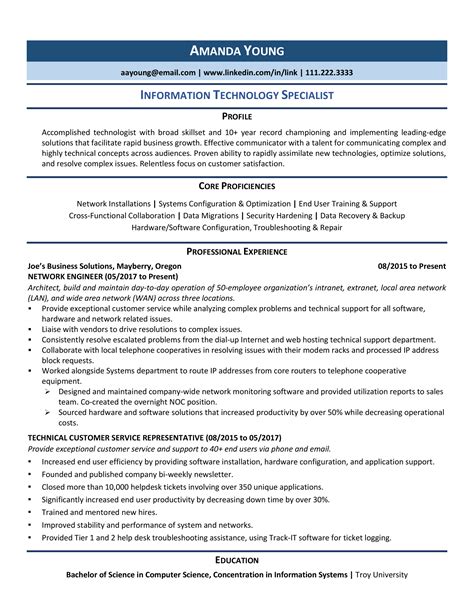Welcome to the digital nomad’s ultimate playbook: “Building a Remote Career: Remote Job Guide.” Whether you’re looking to pivot away from the traditional nine-to-five grind, seeking greater work-life balance, or aiming to travel the world while earning an income, a remote career could be your ticket to freedom. In this comprehensive guide, we will walk you through the essential steps to secure your dream job that doesn’t tether you to a physical location. We’ll start by showing you how to navigate the job market to find remote opportunities that align with your skills and passions. Next, we’ll reveal the insider tips to crafting a resume tailored for remote roles—your golden ticket to getting noticed by employers. Finally, we’ll discuss which professions are currently leading the remote work revolution. Get ready to unlock the door to a more flexible future as we dive into the era of remote employment.Discover essential tips for sourcing remote jobs, crafting the perfect resume, and learning which professions thrive in a remote work environment.
How to Find Remote Job?

Embarking on the journey to navigate the vast expanse of virtual employment can be daunting, yet with the right remote job guide, finding the perfect remote position is definitely within reach. As you venture into the digital frontier, it’s imperative to leverage a multitude of resources and networks to uncover opportunities that align with your professional skills and personal aspirations. The proliferation of online job platforms has made the process of how to find a remote job much more accessible, but it still requires diligence, persistence, and a strategic approach to stand out in a competitive landscape.
While embarking on this quest, it is beneficial to craft a compelling online presence that showcases your proficiency in operating in a digital environment, a critical component when seeking out a working remote job. Engaging with professional communities and participating in discussions about remote work can offer insider insights and lead to connections with potential employers. To enhance your search for a remote role, it is advisable to employ a tailored approach by customizing your applications and demonstrating how your unique skill set will contribute to a remotely distributed team’s success.
In your pursuit of the ideal remote position, you must not overlook the significance of networking and building relationships within the remote work community. Whether through attending virtual job fairs, connecting with remote work advocates on social media or reaching out to companies that are known for their remote-friendly culture, networking plays a pivotal role in uncovering hidden job markets and potential leads. The endeavor to find a remote job may seem like a solitary one, but it’s through the collective wisdom and collaboration of those who’ve successfully navigated the remote work landscape that you can acquire valuable guidance and increase your chances of attaining your desired remote role.
Key Points to Creating Resume For Remote Jobs

Embarking on the journey of securing a remote job requires not only determination but also a solid resume tailored to the nuances of remote work. Crafting your resume with the intent to captivate the hiring managers for a remote role means emphasizing on certain skills and experiences. The first step in this remote job guide is to focus on highlighting your self-management capabilities. Employers seek individuals who demonstrate a high degree of self-motivation and the ability to work independently without direct supervision.
Secondly, it is essential to emphasize your communication skills when creating a resume for a remote job. Since remote work relies heavily on digital communication, articulating your proficiency with various communication tools, such as video conferencing software, messaging platforms, and project management systems, becomes crucial. These competencies illustrate your preparedness for the unique challenges that come with working remote job environments.
Lastly, tailor your resume with keywords relevant to the remote position you are targeting. Understanding how to find remote job opportunities often involves leveraging the power of SEO (Search Engine Optimization) by including terms that are commonly used in remote job descriptions. Integrating these keywords in a natural and relevant manner can dramatically improve the visibility of your resume to potential employers, thereby increasing the likelihood of it being shortlisted for the remote job you desire.
Which professions are suitable for remote work?

In the ever-expanding landscape of the digital economy, certain careers have emerged as particularly well-suited for remote work. Among these, professions in the tech industry, such as software development and digital marketing, have long been at the forefront, offering the flexibility to work from virtually anywhere. Specialists in these fields often find that, with a stable internet connection and the right tools, they are able to perform their tasks with as much efficiency and success as they would in a traditional office setting.
Another profession where remote job opportunities have flourished is graphic design. Graphic designers, leveraging advanced design software, can collaborate with clients and team members online to create visual concepts that captivate and communicate messages effectively. This profession not only allows for remote work but also freelance and contract opportunities, making it an ideal career path for those seeking flexibility and creative autonomy in their professional lives.
With the rise of virtual collaboration tools and the continuous development of cloud-based platforms, administrative roles such as virtual assistants and remote customer service representatives have also adapted to remote environments. These roles are essential to various business operations and can be effectively performed outside the conventional office. As the remote work culture continues to evolve, it is evident that a growing number of professions will adapt to this model, which begs the question for many job seekers on how to find remote jobs that align with their skill sets and career objectives.
Frequently Asked Questions
What are the key benefits of having a remote career?
Some key benefits include greater flexibility, improved work-life balance, reduced commute time and costs, the ability to work from any location, and access to a wider range of job opportunities beyond your geographic location.
What challenges might one face when working remotely?
Challenges can include feelings of isolation, difficulty in separating work from personal life, overwork due to blurred boundaries, potential distractions at home, and the need for self-discipline and excellent time management skills.
How should one prepare for a remote job interview?
Preparation involves researching the company, understanding remote job requirements, ensuring a quiet and professional interview setting, testing technical equipment beforehand, and preparing to discuss how you’ll manage remote work challenges effectively.
Can remote work opportunities be found in various industries or are they limited to certain fields?
Remote work opportunities are available across a vast array of industries, including technology, finance, healthcare, education, marketing, and many more. Technological advancements have expanded the scope of jobs that can be done remotely.
What are some strategies for staying motivated and productive in a remote work environment?
Strategies include adhering to a consistent routine, creating a dedicated workspace, using productivity tools, taking regular breaks, setting clear goals, staying connected with colleagues, and minimizing distractions at home.
How important is it to establish boundaries with family or roommates when working remotely?
It’s very important to establish boundaries to maintain professionalism and productivity. Clear communication about work hours and expectations can help prevent interruptions and allows for a better work-life balance.
What tools and technology are essential for someone starting a remote career?
Essential tools typically include a reliable computer, high-speed internet, communication platforms like email and video conferencing software, project management apps, and security measures such as VPNs and antivirus software.








